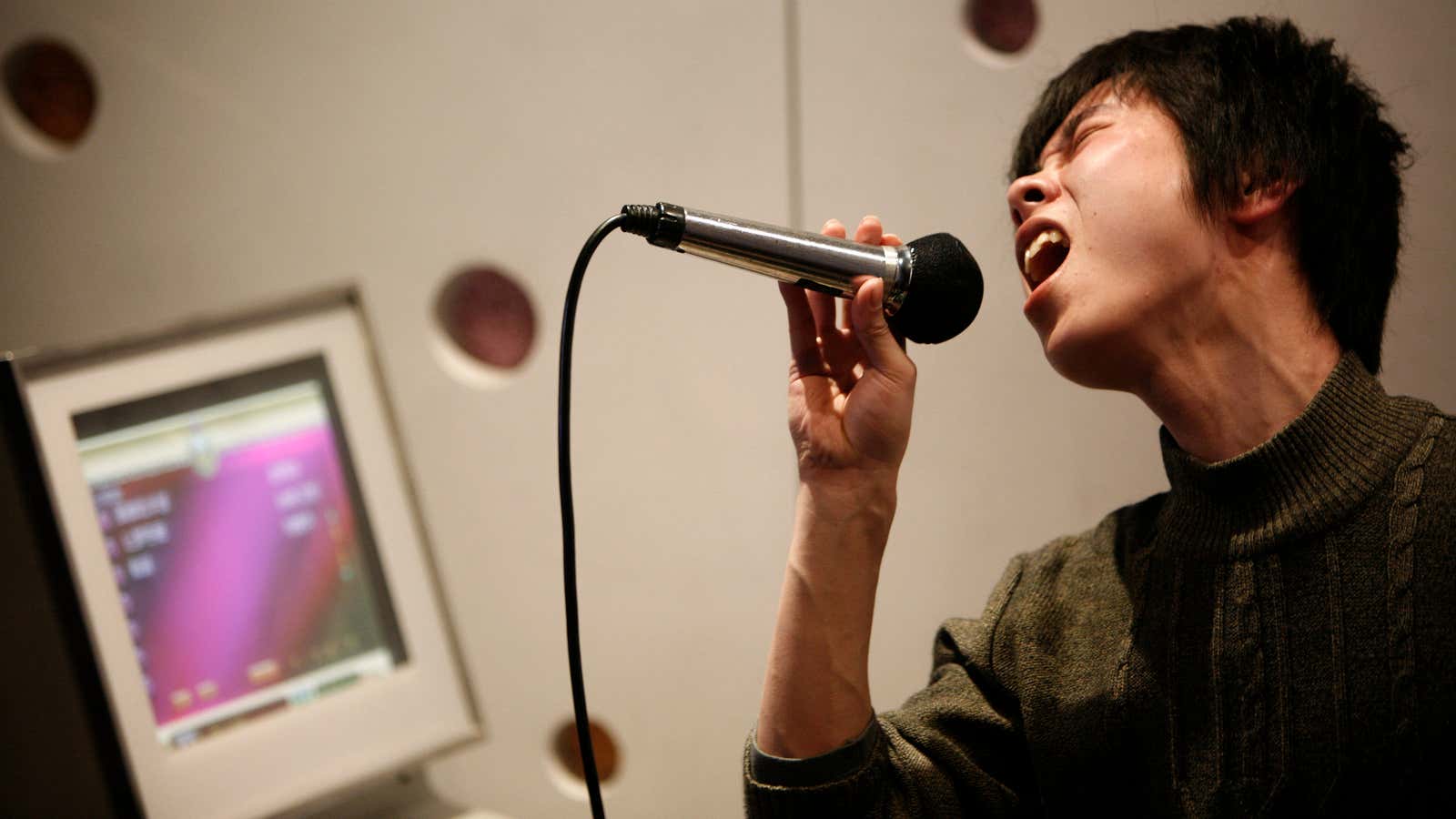Daisuke Inoue should be sitting on a fortune right now. Back in 1971 Inoue brought the world’s first karaoke machine to market. Had he patented his invention, the royalties from the device that now populates bars and homes all over the world might be worth millions. But he never did.
Inoue, a struggling musician, first thought to make the machine when a local businessman asked him to record some songs of his on an open-reel tape recorder in keys that made it easier for him to sing along. “At that moment the idea for the Juke 8 [the first Karaoke machine] dawned on me,” Inoue recalls in an article from 2005 that was just re-published on The Appendix, an online “journal of experimental and narrative history.” Inoue’s invention, the Juke 8, which combined an amplifier, a microphone, a coin box, and an eight-track car stereo, quickly spread across Japan. “Within a year, my company was sending machines all over Japan,” Inoue notes. He says his firm made 25,000 Juke 8s altogether.
But without a patent there was no way for Inoue to prevent competitors from cannibalizing his business. While the first wave of rival devices didn’t undo Inoue’s company—he enjoyed over a decade of lucrative tape-based karaoke machine sales—growing competition and quickly advancing technology eventually proved too much. The advent of laser disc-based machines in particular made it impossible for Inoue’s company to keep up. “After laser discs came out, my company no longer manufactured karaoke machines,” Inoue wrote.
Others, however, including Daiichikosho, one of the first firms to introduce a rival device, have since made out like bandits (Daiichikosho is now the world’s largest karaoke company). Estimates of the size of the karaoke industry are hard to pin down, but one industry association estimated that it was worth ¥617 billion ($5.99 billion) in 2011 in Japan alone.
While it’s a bit unfortunate that the industry’s father has enjoyed little, if any, of karaoke’s commercial success, he has been recognized for his achievement. Inoue was awarded an Ig Nobel Prize, which rewards strange but thought-provoking inventions, in 2004. What’s more, Inoue claims he doesn’t even regret his decision not to patent his revolutionary musical device, since patenting it would have jeopardized its global influence. “Most people don’t believe me when I say this, but I don’t think karaoke would have grown like it did if there had been a patent on the first machine,” Inoue said.
